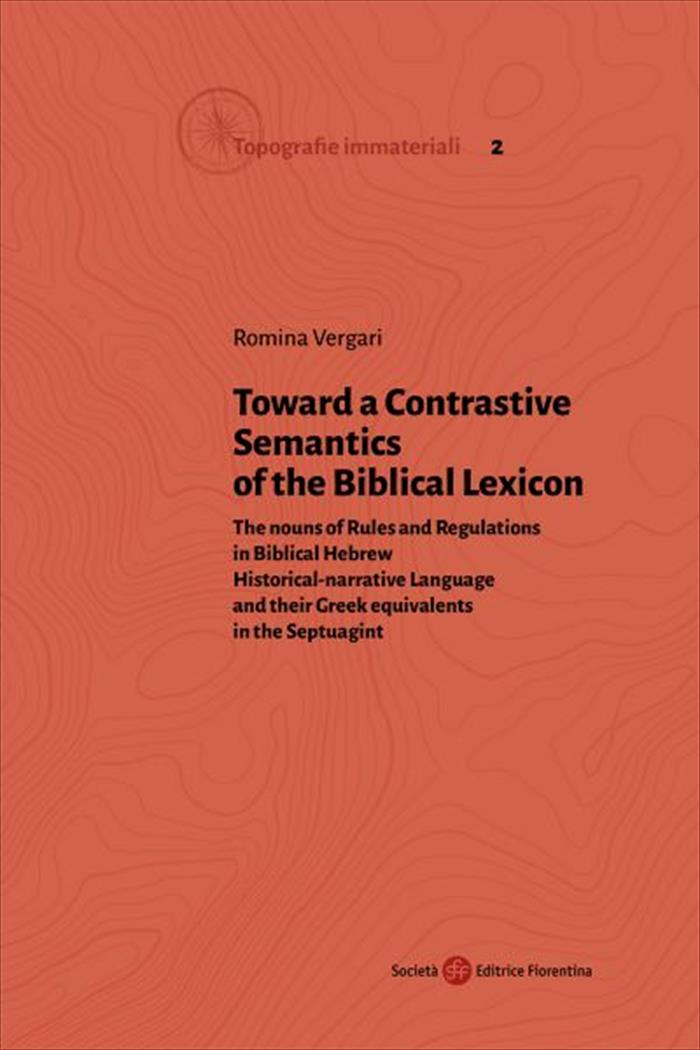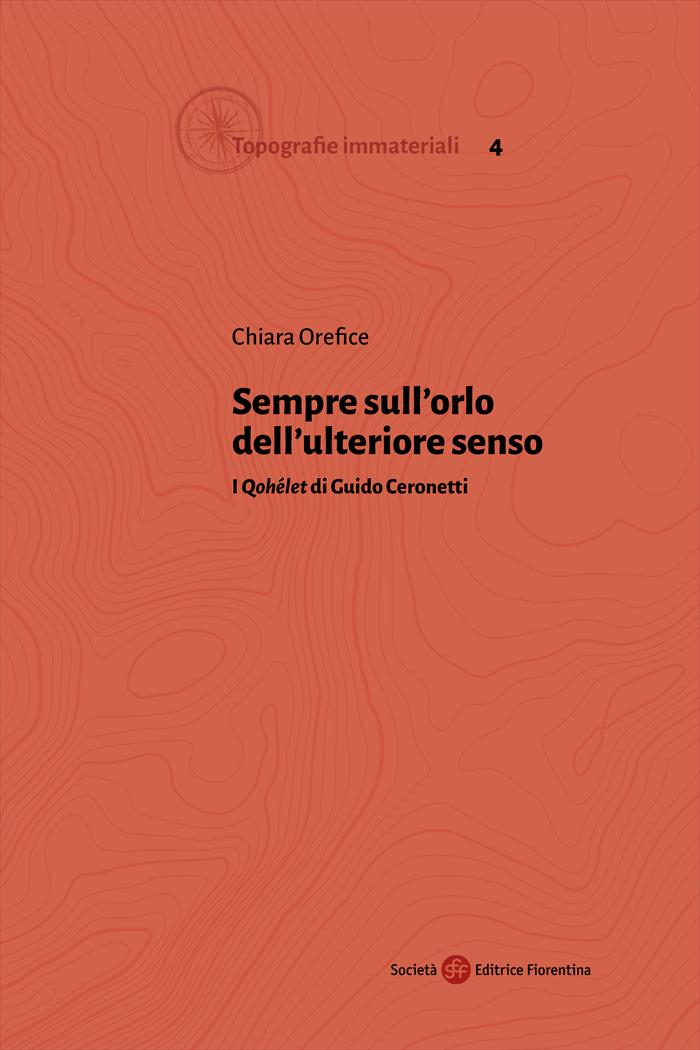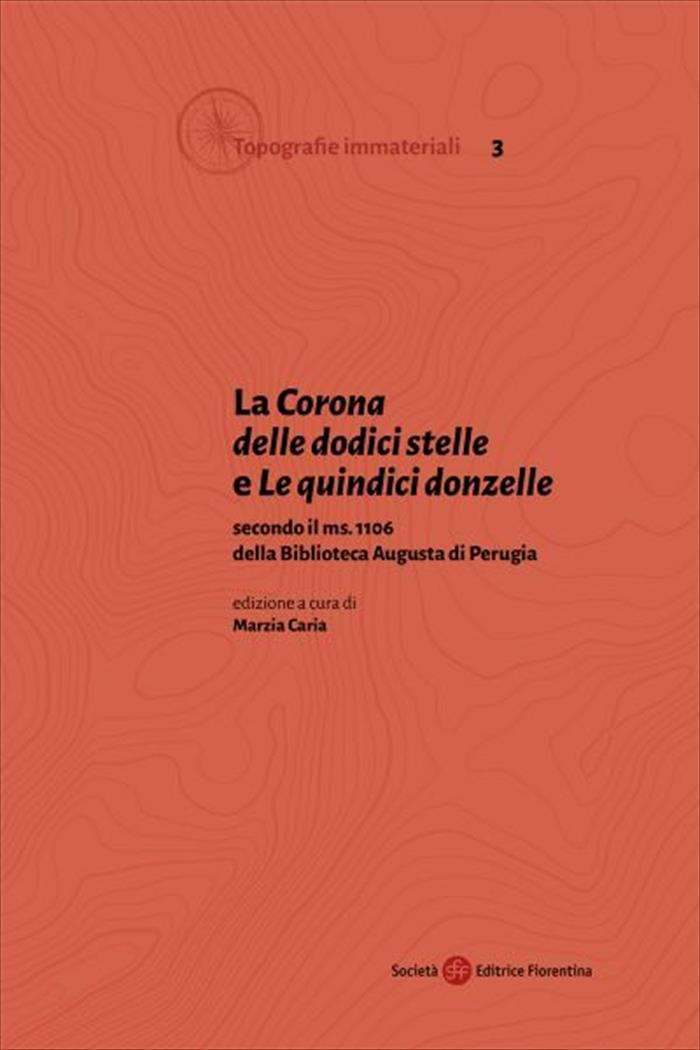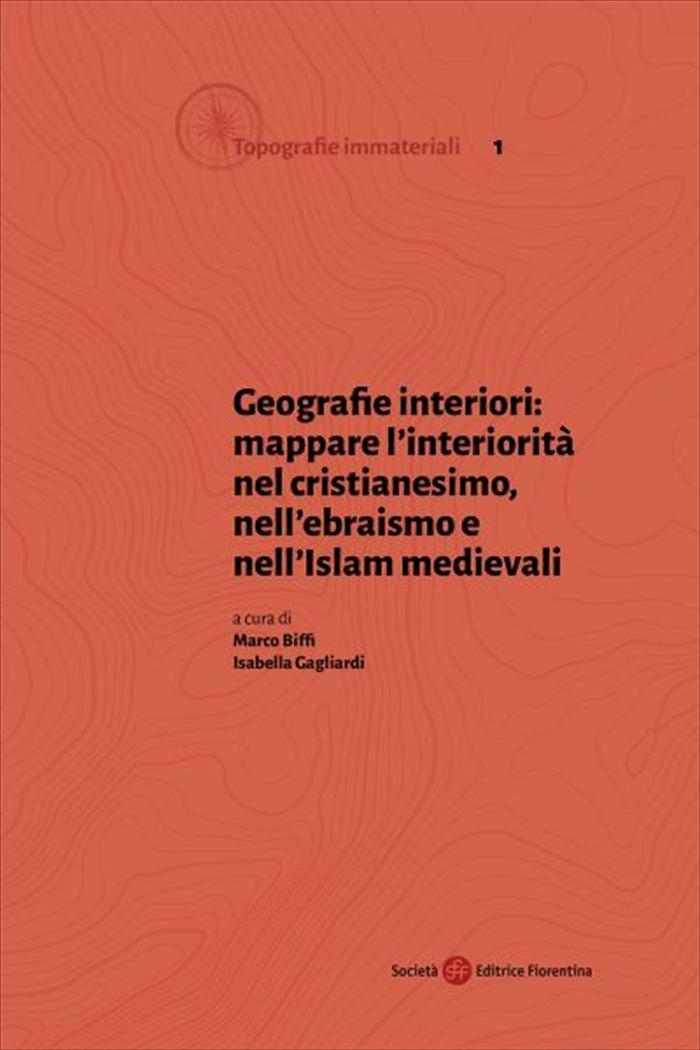Catalogo

Autori
Cita come
Romina Vergari
Toward a Contrastive Semantics of the Biblical Lexicon
The nouns of Rules and Regulations in Biblical Hebrew Historical-narrative Language and their Greek equivalents in the Septuagint
- Collana: Topografie immateriali
- Anno di pubblicazione: 2021
- Lingua: Inglese
- Editore: Società Editrice Fiorentina
- DOI: 10.35947/SEF/978-88-6032-724-6
- Opera sottoposta a peer review
Cartaceo
- ISBN: 978-88-6032-604-1
- Condizioni di accesso: a pagamento
- Pagine: 460
- Prezzo: € 40,00
Digitale
Licenza: CC BY NC ND 4.0- ISBN: 978-88-6032-724-6
- Condizioni di accesso: Open Access
- Pagine: 460
The scope of the investigation has been then interlinguistically extended to the equivalent expressions in the ancient biblical Greek versions. To assess the degree of idiomaticity of the translators’ lexical choices and their possible interpretative implications, a further corpus of Greek historical-narrative texts broadly coeval with the biblical translations has been taken as a term of comparison; such a corpus has been created so as to include on the one hand writings transmitted within the Septuagint textual tradition and therefore exemplary of Graecophone Hellenistic Jewish culture, on the other hand texts whose origin and content are independent from this milieu.
Informazioni bibliografiche
Titolo del libro
Toward a Contrastive Semantics of the Biblical Lexicon
Sottotitolo del libro
The nouns of Rules and Regulations in Biblical Hebrew Historical-narrative Language and their Greek equivalents in the Septuagint
Autori
Romina Vergari
Anno di pubblicazione
2021
Anno Copyright
© 2021
Copyright
Società Editrice Fiorentina
Licenza d'uso
Licenza dei metadati
CC BY 4.0
Editore
Società Editrice Fiorentina
DOI
10.35947/SEF/978-88-6032-724-6
ISBN Print
978-88-6032-604-1
eISBN (pdf)
978-88-6032-724-6
Collana
Topografie immateriali
ISSN
2724-5306
Numero in collana
2

 Scarica il file
Scarica il file


